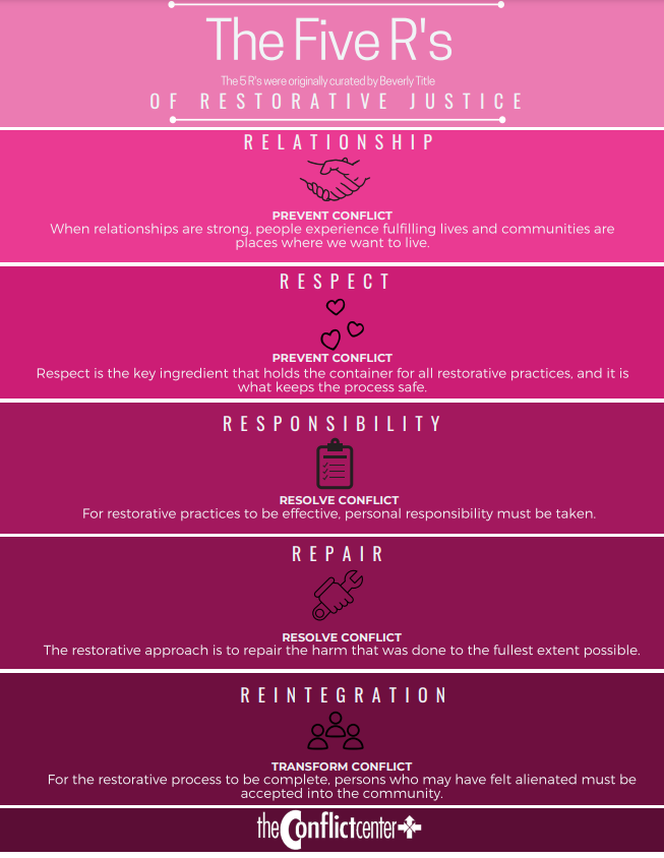What is Restorative Justice?
Restorative justice refers to “an approach to justice that seeks to repair harm by providing an opportunity for those harmed and those who take responsibility for the harm to communicate about and address their needs in the aftermath of a crime."
Restorative Justice:
Tenets of Restorative Justice
Restorative Justice:
- Provides opportunities for harmed parties, harming parties, and communities affected by a crime to communicate (directly or indirectly) about the causes, circumstances, and impact of that crime, and to address their related needs.
- Is based on an understanding that crime is a violation of people and relationships and is based on principles of respect, compassion and inclusivity.
- Encourages meaningful engagement and accountability and provides an opportunity for healing, reparation and reintegration.
- Uses processes, including conferences, dialogues and circles, and is guided by skilled facilitators.
- Is a flexible process and can take different forms depending on the community, program, case, participants, or circumstances.
- Uses processes that may take place at all stages of the criminal justice system and can be used with adults and youth.
- Is used in many county's and states across the country and is a growing global practice.
Tenets of Restorative Justice
- An approach to justice that focuses on the needs of harmed parties and harming parties instead of satisfying abstract legal principles or punishing an 'offender'
- Acknowledging root causes of harming behavior
- Acknowledging the collective social obligations in addressing and repairing root causes of harmful behavior
- Inclusion of more stakeholders
- Emphasis on identifying needs and making things right
- Transforming the traditional relationship between communities and their governments in responding to crime
- Seeing and valuing the web of relationships
- Make justice more healing and transformative for all
- An approach to justice that actively involves all who are impacted by crime
- Seeks to promote accountability rather than blame, and seeks healing and the common good
Where is IDG on the restorative justice spectrum?
The Insight Development Group is a restorative competency building program which does not currently facilitate direct encounters between harming parties and harmed parties. IDG is a comprehensive education program which seeks to help adults in custody develop readiness for restorative direct encounters, promote prison culture change, reintegration preparation, as-well-as to offer a new paradigm for living for those serving long-term or life sentences.


